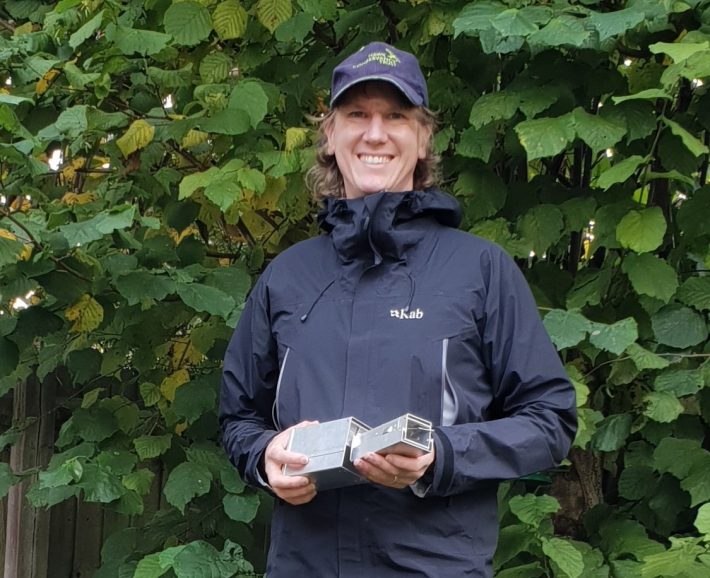Undergraduate Summer School
Whilst applications have opened for 2019 Simon Loughran, an attendee of the Summer School in 2018, gives an overview of his experiences

Last summer I was one of 50 privileged undergraduates who spent five days in Malham Tarn as part of The British Ecological Society’s Summer School, undertaking all manner of lab- and field-based activities and gaining a wealth of knowledge and skills.
I found out in late March that I would be one of the lucky few heading to Yorkshire in July, and every email from BES added a little to the growing excitement. When the big day finally arrived even a 9-hour drive on typical British motorways couldn’t subdue my eager grin. I arrived in Malham with extremely high expectations, and any doubts that they might not be met were quickly removed during the opening plenary. This was clearly first-class stuff and the initial talk set a standard that was met again and again by the professional and academic speakers who delivered talks and led workshops on following days.
Helping everything run smoothly throughout the week were our PhD mentors. These were a group of delightfully helpful, knowledgeable and hard-working postgraduates who were tasked with facilitating undergraduate introductions and initiation, organising social activities, leading their own sessions, and being perpetually on-hand to answer questions.
And the students were all so keen! Despite varied backgrounds and differing in our specific interests and ambitions, we all clearly had a passion for ecology and wanted to engage with it as much as possible. Individual obsessions became evident as we continually shared knowledge, and many of us even got involved with a spot of science communication on Twitter, bestowing on the public facts about morphological variation and crop milk secretion in pigeons, ear inflation in brown long-eared bats and the ability of cinereous mourner chicks to mimic toxic caterpillars.
When I try to pick out highlights from the week I struggle and find myself effectively listing everything. Each day was packed with a diverse range of sessions, providing not only a beautifully-balanced blend of knowledge and skill development, but also demonstrating the various academic and career choices available to us, whilst still managing to cater for all and make no assumptions about level of experience or specific future plans. I honestly enjoyed every talk and workshop. Some specifics that stick in my memory are experiencing complete darkness in the coolness of Scoska Cave having been introduced to the wonders of speleobiology, the rhapsodic energy with which mammal ecology and public engagement talks were delivered, the steadfast assurance of the importance of insects, the debates about Dawkins over dinner, and for some reason my undeterred insistence that our quiz team be called “The Muppets” (we didn’t win). Oh, and I was awarded a certificate for “sheer volume of tweets”. I’m still not sure how proud I should be of that.
I also really valued the number of opportunities to develop identification skills. I found myself matching limestone flora to pictures in wildflower guides, flicking back and forth through insect keys separating my hemipterans from my coleopterans, discerning the caudal vertebrae of European eels in otter spraint, considering the adaptations of carnivore skulls, performing faecal egg counts, and kick-sampling for macroinvertebrates. Who would have thought kicking the bottom of a stream for several minutes counts as science?
The Summer School went beyond providing education, skill development and opportunities to network—although these were important components. Underlying every session and talk was an emphasis on the importance of ecological interactions. This wasn’t always explicit, but seems to be a way of thinking that pervades the approaches and decisions of the professionals and academics who were guiding us.
I keep asking myself why the week had such an impact on me and the other attendees. The obvious answer is that we were a group of undergraduates with a common interest in ecology. Put us together in a series of carefully planned events and activities in a stunning setting with top-quality academics, professionals, and postgraduates who share our enthusiasm and we’re bound to have a good time.
Well, yes. But it was more than that. There’s something that’s difficult to put your finger on. It’s linked to a certain way of thinking; a way of approaching questions and solving problems; an optimism about what we’re doing and knowing that there are others who share our motivation and enthusiasm.
There should be no doubt about the benefits of the BES Summer School. It provides the perfect environment at a key point in our development, cementing for us what a fascinating and far-reaching subject ecology is, and demonstrating its ability to accommodate a diverse range of people and ambitions. It builds confidence and adds to the set of skills and tools we’ll need to succeed in whichever of the many varied educational and career paths we’re planning on pursuing.
A lecturer of mine is fond of saying that there’s never been a more important time for ecology and I strongly agree. The future of ecology depends on future ecologists. We understand and appreciate that we’re part of a special community and having seen what our cohort has to offer and the support available I’m confident we’ll do it proud.
Applications are now open for 1st and 2nd year undergraduates for the Summer School 2019. This year we will be heading to Millport FSC Centre, Scotland and you could join us! Visit our webpage for more information and details on how to apply.
Like what we stand for?
Support our mission and help develop the next generation of ecologists by donating to the British Ecological Society.